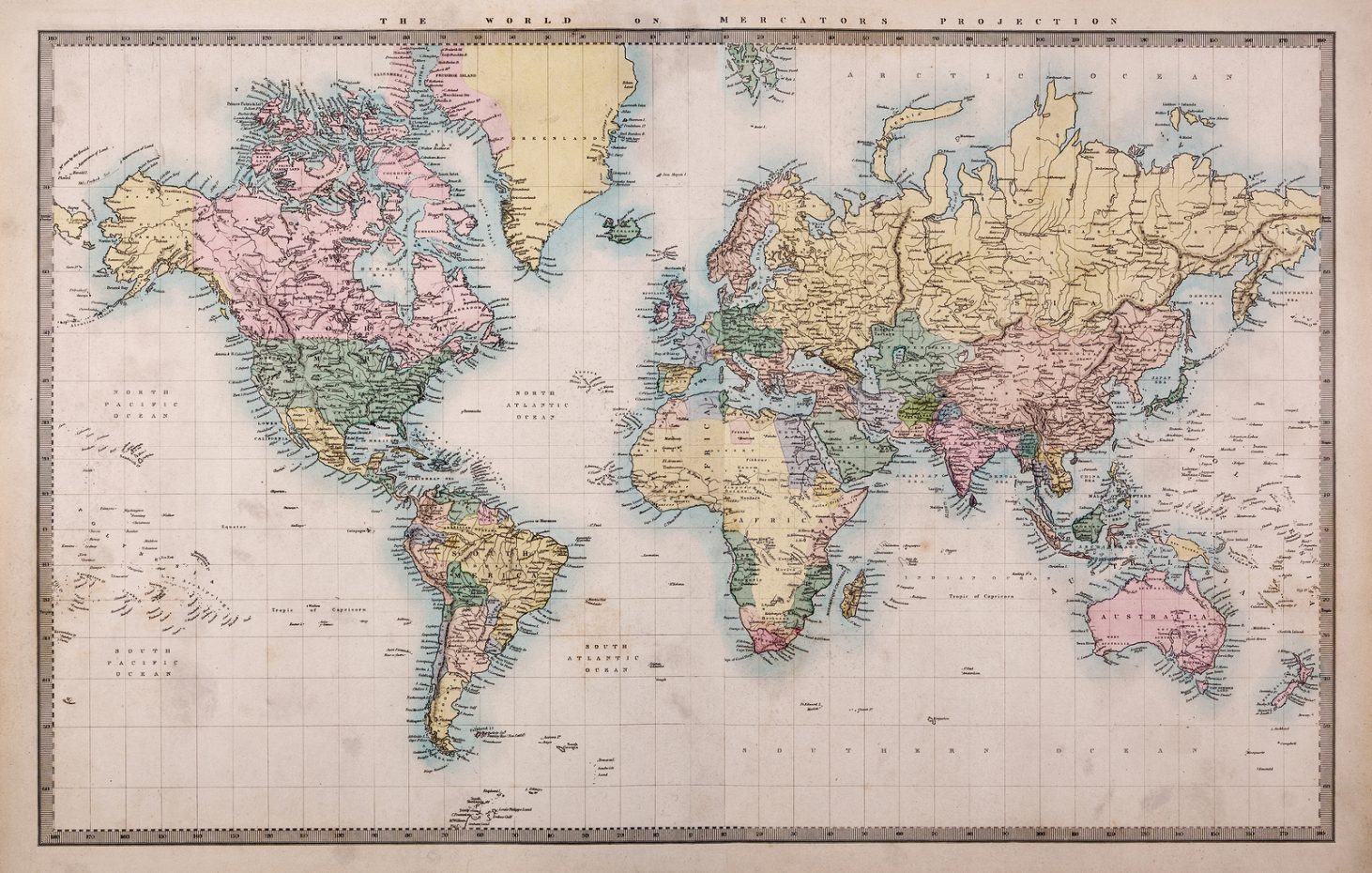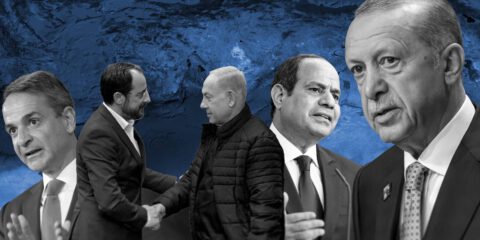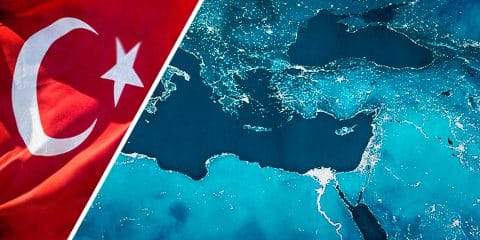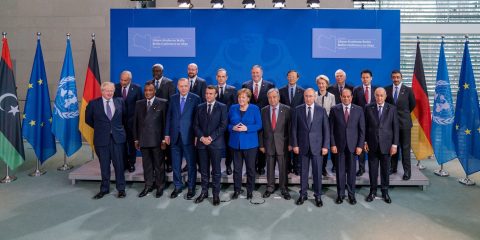מתוך ראייה אנליטית, כמו גם משיקולים מעשיים ואף פוליטיים, הגיעה העת להגדיר מחדש את מקומה של ישראל בעולם כמדינה המשתייכת ל”מזרח הים התיכון”, ולא ל”מזרח התיכון”.
שמו המקובל של אזורנו – “המזרח התיכון” – הוא בפועל שריד לשוני של העידן שבו העולם נמדד במושגים של המרחק מלונדון, בירת האימפריה הבריטית (“מזרח קרוב”, “מזרח תיכון”, “מזרח רחוק” ואפילו “מזרח קיצון”). בראייה אנליטית, כמו גם מסיבות מעשיות ואף פוליטיות, הגיע העת להגדיר מחדש את מקומה של ישראל בעולם במושגים של שייכות לאגן המזרחי של הים התיכון.
האם מזרח הים התיכון אכן יכול להיחשב כתת-מערכת בעלת משמעות משל עצמה בסדר העולמי? ועידת הפִסגה המשולשת החמישית של מנהיגי יוון, קפריסין וישראל (20 בדצמבר 2018, בבאר שבע – שנבחרה משום שישראל שואפת להפוך אותה למוקד עולמי בתחום הסייבר) היא בגדר עדות חיה לכך שמערכת כזאת אכן מתגבשת. חשובה לא פחות היא ההחלטה על הקמת מזכירות קבועה של השלוש שמושבה בניקוסיה, במקביל למזכירות המצרית-יוונית-קפריסאית.
ניתן לבחון זאת בחמישה היבטים שונים. בראייה מעצמתית, עולה האפשרות שהמפגש המשולש מוביל לתרגיל צבאי משותף במזרח הים התיכון שבו תיטול חלק גם ארה”ב. זה יהיה אות לכך שוושינגטון לומדת לחשוב על הים התיכון לא רק כ-SLOC (נתיב מעבר ימי). עתה מוטל על ישראל ובעלות בריתה לבנות ביתר חדות את הנימוקים לכך. מטבע הדברים, עדיף היה – בעולם אידיאלי – להגיע לפתרון בעיותינו ללא מעורבות מעצמתית מבחוץ. אולם לנוכח הידוע לנו לגבי הנוכחות הרוסית ולגבי הכוונות הסיניות בים התיכון, חשוב שארה”ב תישאר מעורבת ומודעת למה שמונח על כף המאזניים. בגזרה זו, שיתוף פעולה בין התפוצות – היהודית והיוונית – יכול להביא תועלת מרובה.
מזרח הים התיכון חשוב גם מנקודת המבט ה“ריאליסטית”, הבוחנת את מאזני הכוחות. לישראל ולשותפותיה בדיאלוג יש השקפה נחושה לגבי הסכנות האורבות לעולם כולו, ולאזורנו בפרט. זאת בניגוד מסוים להלכי הרוח הקאנטיאניים בדבר “שלום עולמי” הרווחים במוסדות האיחוד האירופי בבריסל. במילים אחרות, המשולשים במזרח הים התיכון, בדומה לברית נאט”ו, נולדו כאשר הם מודעים לקיומם של אויבים, כמציאות יום-יומית, ואילו האיחוד האירופי בא לעולם ללא יכולת לאיית נכון את המילה “אויב”.
ניתן לבנות במזרח הים התיכון קואליציות ובריתות אפקטיביות שתסייענה להשיב על כנו מאזן כוחות הנתון כיום תחת איום – ולסכל בתוך כך את השאיפות של מעצמות אזוריות החותרות לסובב את הגלגל אחורה ולהשליט את מרותן על סביבתן. במקרה האיראני, נלווית לכך חתירה מוצהרת להשמדת ישראל. יש מגוון של איומים ואתגרים ביטחוניים שניתן להתמודד איתם באמצעות שיתוף פעולה.
בה בעת, אפילו מנקודת מבט “אידיאליסטית” וקאנטיאנית חשוב להדק את הקשרים בין מדינות מזרח הים התיכון – כאמצעי לקידום השלום. קהילה אזורית מתפקדת היטב של אומות יכולה לסייע בפתרון סכסוכים, או לפחות ביצירת תנאים משופרים לניהול טוב יותר של כמה מן הסכסוכים העיקשים של העולם בדורות האחרונים. ישראל והפלסטינים; בעיית קפריסין; עתיד הכורדים – עם כל אחד ממכלולים אלה ניתן להתמודד באופן יעיל יותר בהקשר ים-תיכוני מורחב.
ואכן, גם בראייה כלכלית האזור הופך במהירות למוקד אספקת אנרגיה, ושיתוף פעולה אזורי הוא חיוני בכל המאמצים המיועדים להביא משאבים נרחבים אלה (ובעיקר גז טבעי) אל השווקים. מעבר לכך, יש ביטויים נוספים של שותפות. נמל חיפה משמש לסחר בין ירדן לתורכיה – שבעבר התנהל בכבישיה של סוריה – וסין מגלה עניין גובר במזרח הים התיכון כחלק מיוזמת “החגורה והדרך” של הנשיא ש’י ג’ינפינג. גם באלה יש כדי להוכיח שיש לראות את מזרח הים התיכון כחטיבה כלכלית ואסטרטגית אחת.
לבסוף, מנקודת מבטם של אלה בינינו החושבים במושגים “קונסטרוקטיביסטיים”, רעיונות ושאלות של זהות ממלאות תפקיד חשוב. כך גם שאלות של אמונה דתית. טהא חוסיין, האינטלקטואל המצרי הדגול, לא רק שהיה בן בית בשתי המסורות התרבותיות הגדולות של אגן הים התיכון, אלא אף ראה ביניהן רצף שאין לנתקו. בדומה לקאמי בצידו המערבי של הים התיכון, הוא האמין בערכה של זהות ים-תיכונית (“מתווסטיה” בערבית; Mediterraneite בצרפתית) הנשענת על מורשת תרבותית והיסטורית משותפת הגלומה במושג הרומי “מארה נוסטרום”, הים שלנו.
אמת, אנו עדיין רחוקים מאוד ממימושה של מערכת ביטחון קולקטיבית של כל המדינות שלחוף הים התיכון, ושתי “ים-תיכוניות של כבוד”, ירדן ומאוריטניה. זה עדיין חזון רחוק. אך בכל זאת אנו עדים להנחתן של אבני בניין, זו לצד זו, היכולות להוביל לכינונו של משטר ביטחון תת-אזורי. כאמור, בעקבות הפסגות המשולשות בניקוסיה ובבאר שבע מתארגנות בניקוסיה שתי מזכירויות שתפעלנה באופן סדיר, “גב אל גב”, כצעדים לקראת אופק שאפתני יותר של שיתוף פעולה.
מוקדם יותר השנה העליתי על הכתב הצעה שלפיה, בהמשך הדרך, נחתור לכונן מסגרת מדינית של 3 ועוד 3, בדומה לזו של 5 ועוד 5 במערב הים התיכון (שבה שותפות האירופיות פורטוגל, ספרד, צרפת, איטליה ומלטה, לצד הצפון אפריקניות – מאוריטניה, מרוקו, אלג’יריה, תוניסיה ולוב). במסגרת זו צריכות להיכלל איטליה, יוון וקפריסין לצד מצרים, ישראל וירדן.
יש נקודה המחייבת הבהרה: זו צריכה להיות מסגרת של מדינות ואנשים שנקודת השקפתם דומה (Like Minded). אין זה סוגר את הדלת בפני מדינות שאינן עונות כיום להגדרה זו (כמו תורכיה בהנהגתה הנוכחית), אך עשויות לשנות את עמדותיהן. זה אינו מועדון אקסקלוסיבי אלא כזה שמבוסס על שותפות ערכים ויעדים, אך כזה שדלתו צריכה להישאר פתוחה.
משום כך, חשוב שמאמץ זה יחרוג מעבר להידברות וליחסים בין ממשלה לממשלה (G to G) ובין צבא לצבא (M to M). נחוצים קשרים בין העמים – מה שמכונה P to P – ובין התפוצות (D to D), כמו גם (אם להציע מטבע לשון חדש) TT to TT, מכוני מחקר מול מכוני מחקר, הנרתמים להעמקת ההבנה ההדדית בין העמים שלחופי הים התיכון.
סדרת הפרסומים “ניירות עמדה” מטעם המכון מתפרסמת הודות לנדיבותה של משפחת גרג רוסהנדלר.
תמונה: Bigstock








 - בניית אתרים
- בניית אתרים